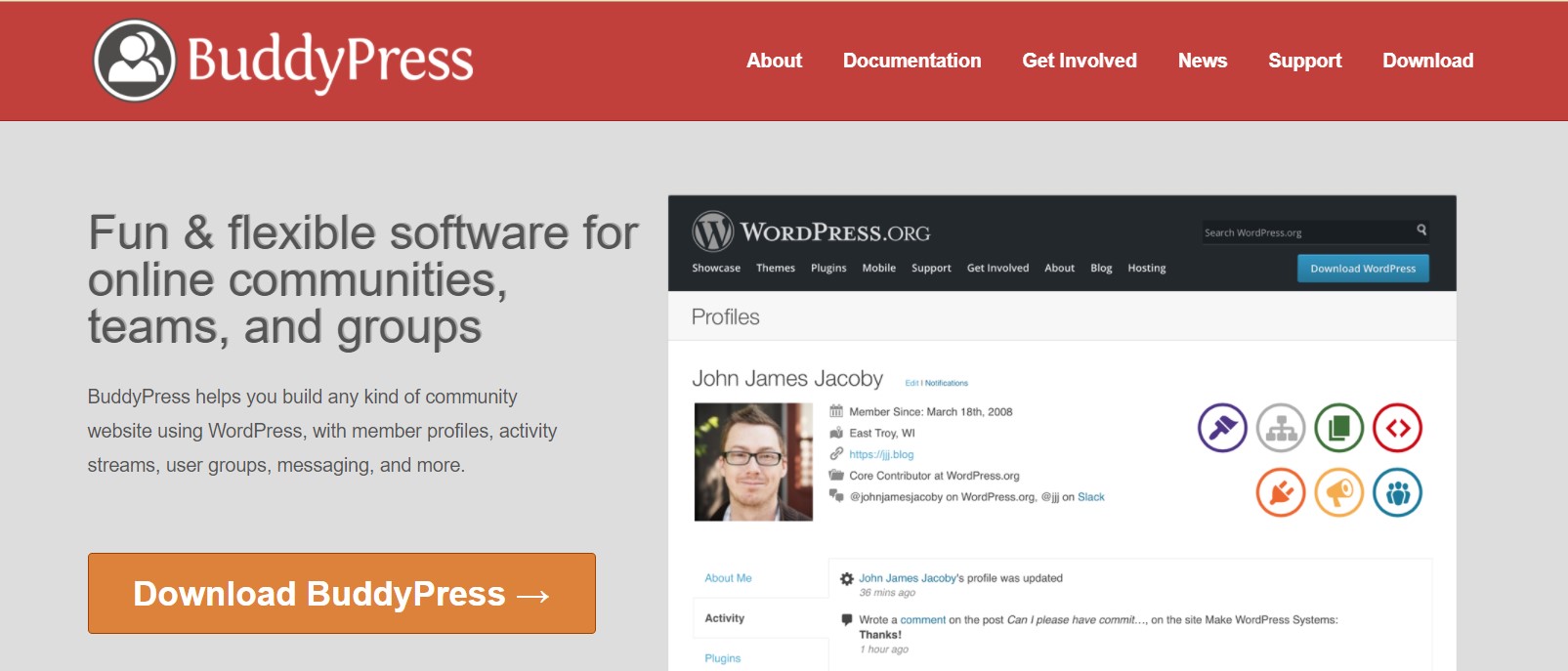TechRadar Verdict
BuddyPress is a powerful plugin for adding a free social networking platform to your website on WordPress. That said, it could stand to improve in terms of theme compatibility and advanced feature support.
Pros
- +
Free plugin
- +
Lots of extensions
Cons
- -
Lacks advanced features
- -
Supports few themes
Why you can trust TechRadar
BuddyPress is a plugin for the self-hosted content management platform WordPress. It allows web developers to create and integrate a social media network within a self-hosted website. It is especially useful for businesses looking to create a vibrant online community that fosters communication between their employees and customers.
BuddyPress is a highly modular plugin. It contains features like activity dashboards, conversation threads, user profiles, and more, all of which can be enabled or disabled as per the website owner’s needs. Moreover, there is a slew of themes and plugins made specifically for BuddyPress, allowing developers to further extend its functionality.
- Want to try BuddyPress? Check out the website here
BuddyPress is a powerful micro-community plugin that allows every website owner to have their own social network. However, with the entry of new competitors like WP Symposium Pro, how well does the incumbent stack up against the best website builders for social networking? In our extensive Automattic BuddyPress review, we will go over its pricing, features, interface, and support to see if it’s the right plugin for your website..
- Also check out our roundup of the best WordPress forum plugins
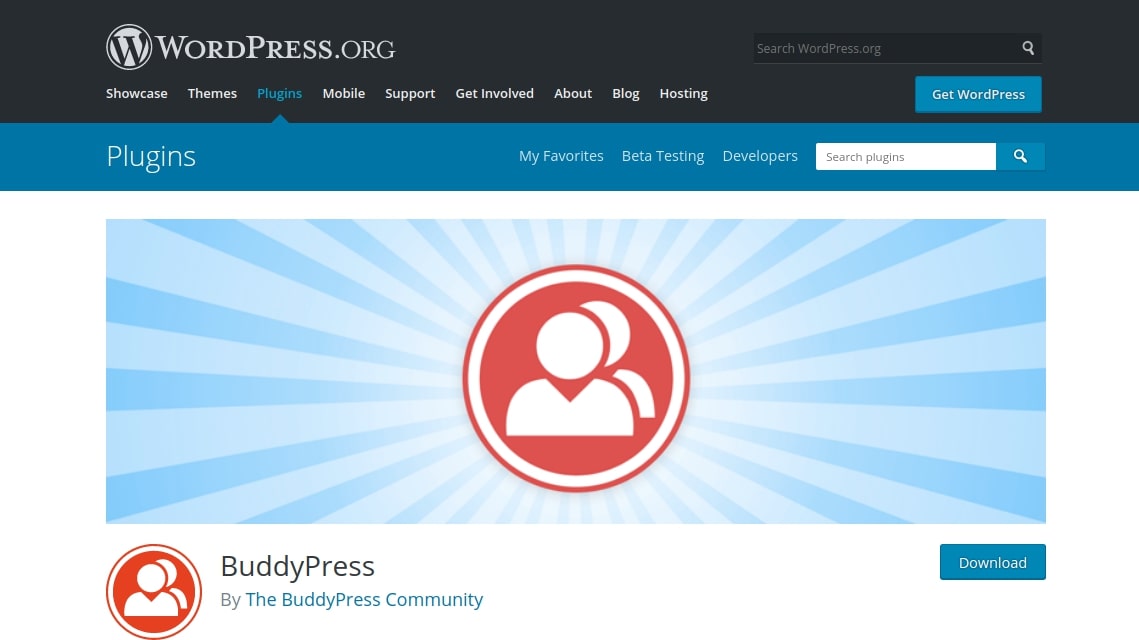
Plans and pricing
BuddyPress is a 100% free WordPress plugin. All of its core modules and extra features are available completely free of charge. This is its biggest differentiator among competitors, who charge anywhere from $99 a year to $249 a year for premium features and support.
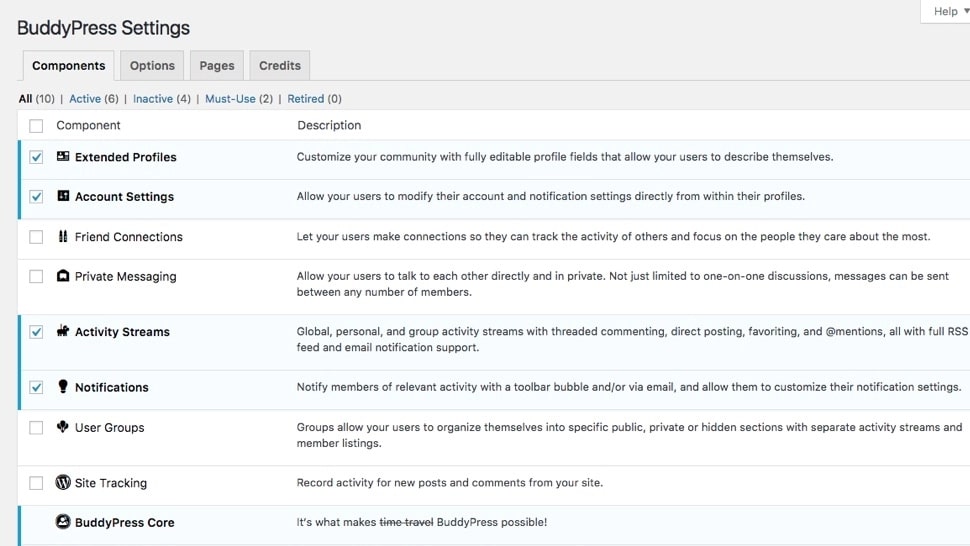
Features
BuddyPress comes packed with a variety of powerful features, including social groups, activity dashboards, friend requests, user profiles, privacy settings, account management, and more. As the site administrator, it is up to you how much freedom and power you wish to delegate to your website users.
You can, for instance, let users form their own groups within your social network. Privacy settings, if enabled, allow users to decide which parts of their profiles will be visible to the public. Users can also send each other connection requests and like each other’s posts much like any popular social network.
For developers who want even more out of their BuddyPress website, a variety of third-party extensions and plugins are also available. A good example of this is rtMedia, which is another free plugin that allows users to upload audio and video albums using BuddyPress. BuddyPress Users Chat, on the other hand, is a premium plugin that sells for $35 USD. It lets developers integrate a powerful user chat function into BuddyPress.
Sign up to the TechRadar Pro newsletter to get all the top news, opinion, features and guidance your business needs to succeed!
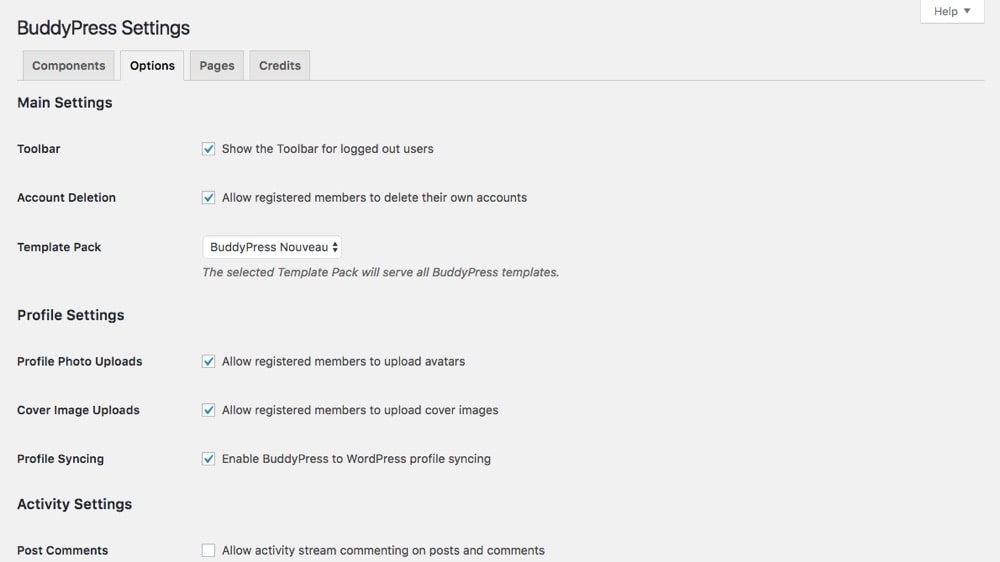
Interface
After you install and activate the plugin, BuddyPress adds a new page to your WordPress backend under Settings > BuddyPress. This page consists of a tab-based navigation that allows you to configure your social networking site the way you choose. You can, for example, add activity streams or connection requests to add more spontaneity to your social network.
The tab-based navigation splits the options page into four sections. The first one is called Components. Under Components, you will find the options to enable or disable several of the plugin’s independent modules, such as activity streams, friend connections, and private messaging. Modules like extended profiles and account settings should be left on by default.
The second section is called Options. This is where you can change your BuddyPress theme from Default to Nouveau and enable member-specific features like Account Deletion, Profile Syncing, and Media Uploads. These features allow the members of your social network to perform specific tasks, such as add a profile photo or delete their account without your help.
The third section is called Pages. It contains a list of all the static pages that are used by BuddyPress. You can customize these options to assign specific pages to various sections of your social network, such as activity streams or account registrations. The fourth section contains various credits dedicated to the developers of BuddyPress.
The overall interface employed by BuddyPress uses the default color palette and font combination employed by WordPress.org. That way, the user interface integrates seamlessly with the rest of the back end without looking out of place. All in all, it’s easy to use and functional.
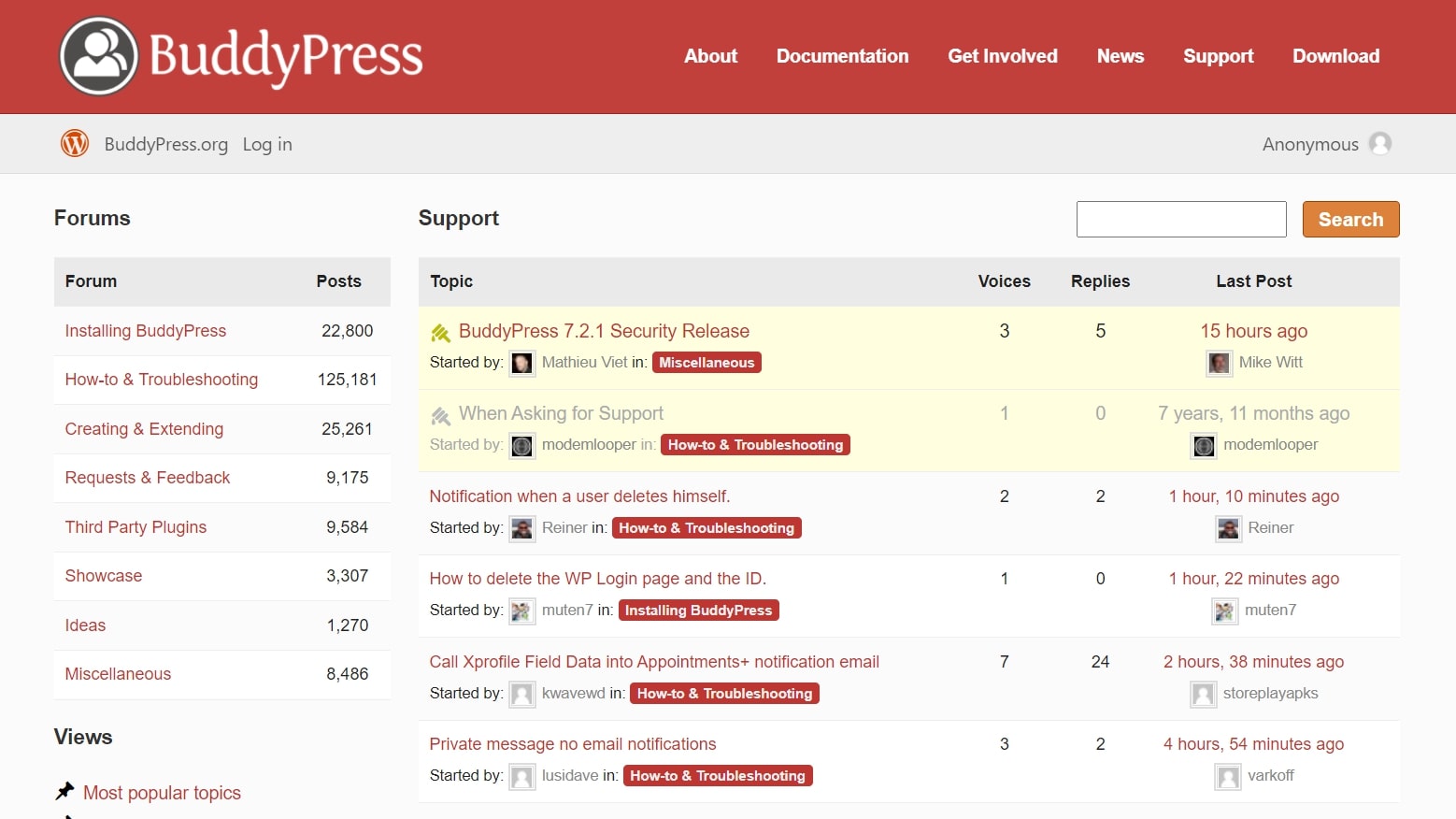
Support
BuddyPress comes with a free knowledgebase on its website with lots of instructions on getting started. It also offers a community forum where plugin developers and plugin users can communicate with each other and solve simple problems. That said, advanced one-on-one support is not available, as this is a free plugin.

The competition
Thanks to the expansive list of plugins that come with WordPress, there are more than a few alternatives to BuddyPress in the market. While these are usually freemium plugins which require a paid subscription to unlock pro features, they do improve upon some of the areas that are as of yet untouched by BuddyPress.
PeepSo, for example, is a social networking plugin with private messaging, friend requests, and user blocking. It also comes with a selection of themes and templates for your social network. It is GDPR compliant and has full support for the native page builder called Gutenberg. However, there is no lifetime plan, and paid subscriptions start at $129/year.
Another great option is WP Symposium Pro, which offers a free core plugin with paid extensions that can be purchased as needed. It offers premium support and comes packed with features. It is also compatible with all WordPress themes.
Final verdict
BuddyPress is an excellent plugin for developers and website owners looking to create a free social networking site with WordPress. It is available entirely free of cost and has an extensive list of both free and paid extensions that can be used to expand upon its core functionality. That said, a lot of newer competitors in the market, such as PeepSo and WP Symposium, offer a more comprehensive and feature-rich experience, if for a premium price.
- We've also featured the best WordPress plugins

Ritoban Mukherjee is a tech and innovations journalist from West Bengal, India. These days, most of his work revolves around B2B software, such as AI website builders, VoIP platforms, and CRMs, among other things. He has also been published on Tom's Guide, Creative Bloq, IT Pro, Gizmodo, Quartz, and Mental Floss.
